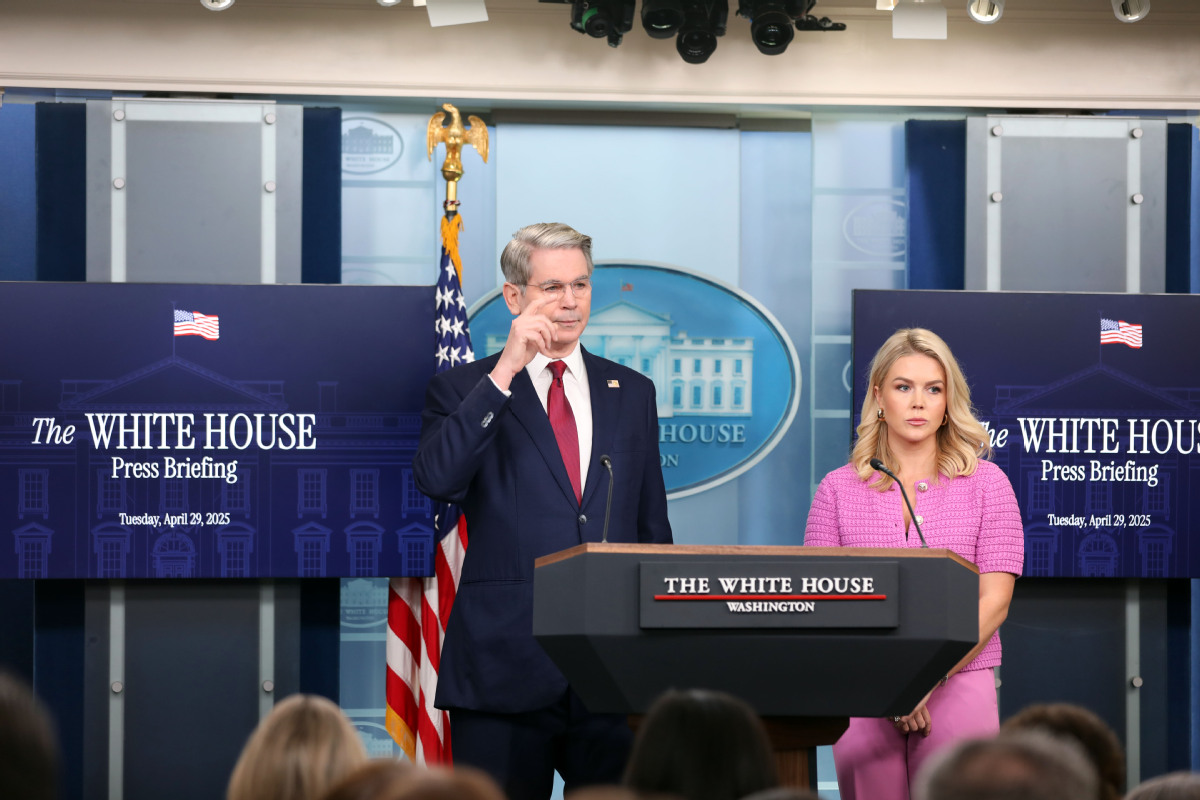
Amid trade tensions and policy uncertainty stemming from the tariff war, Washington needs to become more predictable in order to boost global and United States economic growth projections, a think tank analyst said.
"We now have a saying — the greatest predictability in the world of today is the unpredictability of the United States," said Victor Zhikai Gao, vice-president of the Center for China and Globalization, a Beijing-based think tank. "This is not a high mark or compliment. I think the US needs to make itself predictable," he told China Daily in Washington.
In recent weeks, the Trump administration has rolled out sweeping tariffs, starting with a blanket 10 percent duty on all foreign-made imports. Dozens of countries received a 90-day pause until July, but tariffs on Chinese goods surged to 145 percent.
READ MORE: Trump's approval rating lowest for a US president in 80 years
Last week, the International Monetary Fund, in its latest "World Economic Outlook" report, slashed projections for the global and US economies by 0.5 percentage point and 0.9 percentage point, respectively, from its January forecasts, citing the impact of US tariff increases and retaliatory measures of other countries.
The global lending agency cut its projection for US economic growth in 2025 from 2.7 percent to 1.8 percent, the largest downgrade for any major economy.
Speaking at a media briefing on Thursday, IMF Managing Director Kristalina Georgieva said, "I want to reiterate my message: Uncertainty is really bad for business, so the sooner this cloud that is hanging over our heads is lifted, the better for prospects for growth."
However, US Treasury Secretary Scott Bessent seemed to view uncertainty in a different light.
On Sunday, a few days before US President Donald Trump reaches the 100-day mark of his current term as president, Bessent defended the White House's tariff policy, which has roiled global markets, as a way to create "strategic uncertainty" — an approach that he said gives Washington the upper hand.
"In game theory, it's called strategic uncertainty, so you're not going to tell the person on the other side of the negotiation where you're going to end up," Bessent said in an interview with ABC News.
"Nobody is better at creating this leverage than President Trump," Bessent added.
Recent polls conducted ahead of the 100-day mark of Trump's second term found that a majority of Americans surveyed said they disapproved of the current trade and tariff policies.
A CBS News/YouGov poll conducted last week found that support for Washington's tariff policy has been declining, from 52 percent in late November, when Trump was elected, to 41 percent, as a rising number of Americans said the administration is focusing too much on the issue.
In addition, fewer respondents said they believed that the Trump administration has a clear plan for tariffs and trade, and overall, more Americans who were surveyed said current policies are making them worse off financially.
Similarly, the results of a New York Times/Siena College poll released on Friday said that half of registered US voters said they felt the Trump administration had made the economy worse in the current term, while 27 percent said the economy was about the same, and one in five said the Trump administration had made it better.
Among more than 300 economists surveyed in a Reuters/Ipsos poll from April 1 through Monday, 92 percent viewed the tariffs negatively, with none citing a positive effect.
More than 60 percent of respondents said they believed that there was a high or very high risk of recession this year due to the tariff hikes.
On Monday on Truth Social, Trump's social media platform, the president blasted polls showing his approval rating falling, saying that a poll by The New York Times and polls by ABC News, The Washington Post and Ipsos did not survey enough of his supporters.
ALSO READ: Tariff clouds loom over IMF, World Bank Spring Meetings
Meanwhile, Gao, the think tank expert, whose recent comments on US-China relations went viral on the internet, said surprises or intimidation in talks are unacceptable.
For this round of trade tensions, negotiations and dialogue between Washington and Beijing are needed, but the starting point is that the two sides "fully respect each other", rather than "keep surprising the other side or surprising mankind in the world", Gao said.
Heightened uncertainties and skyrocketing duties on goods worldwide have spread anxiety among executives, affecting their market confidence.
James Rossiter, head of global macro strategy at TD Securities, said in a report on Monday that was cited by Reuters that "it's hard enough for firms to think about July right now, where they don't know what the 'reciprocal tariffs' are. Try and plan another year down the road. I mean, who knows what it looks like, let alone five years down the road."
huanxinzhao@chinadailyusa.com


